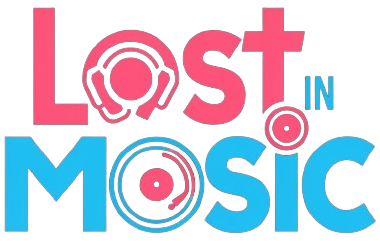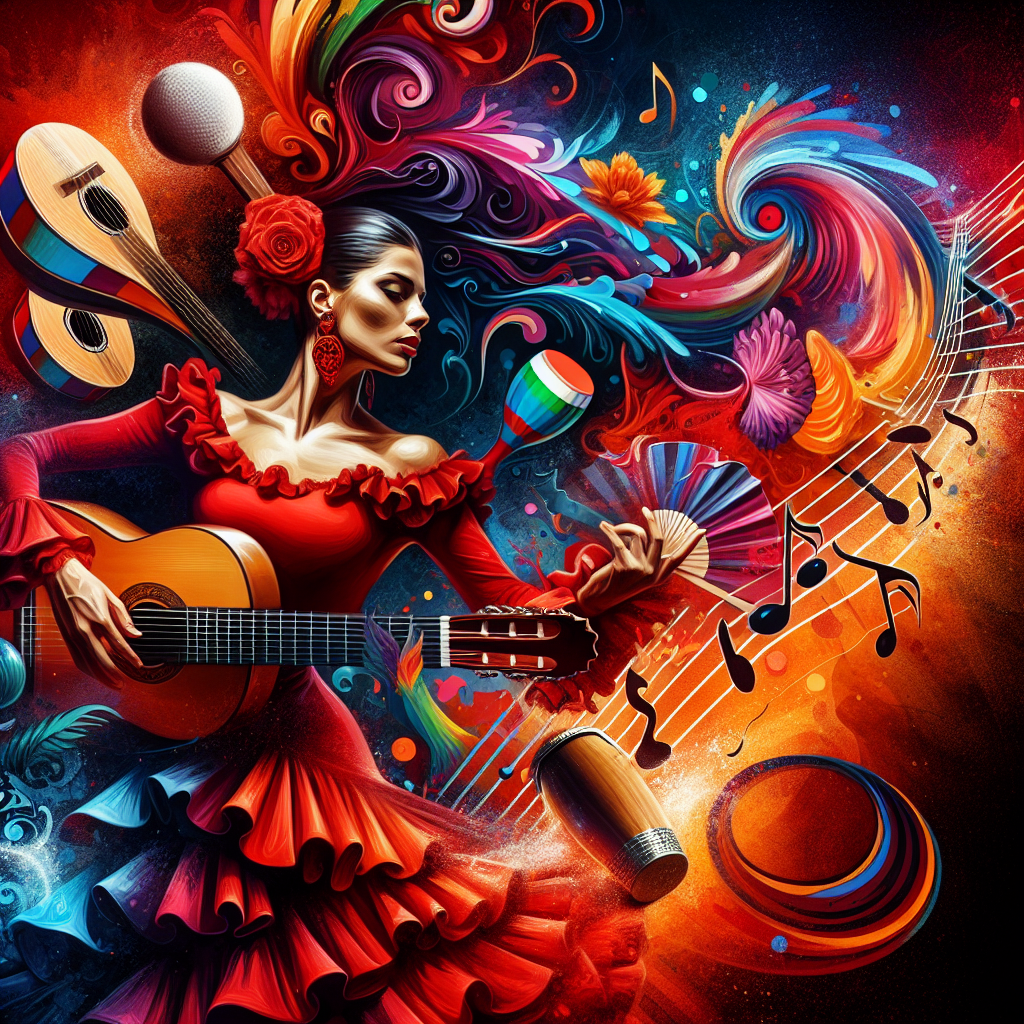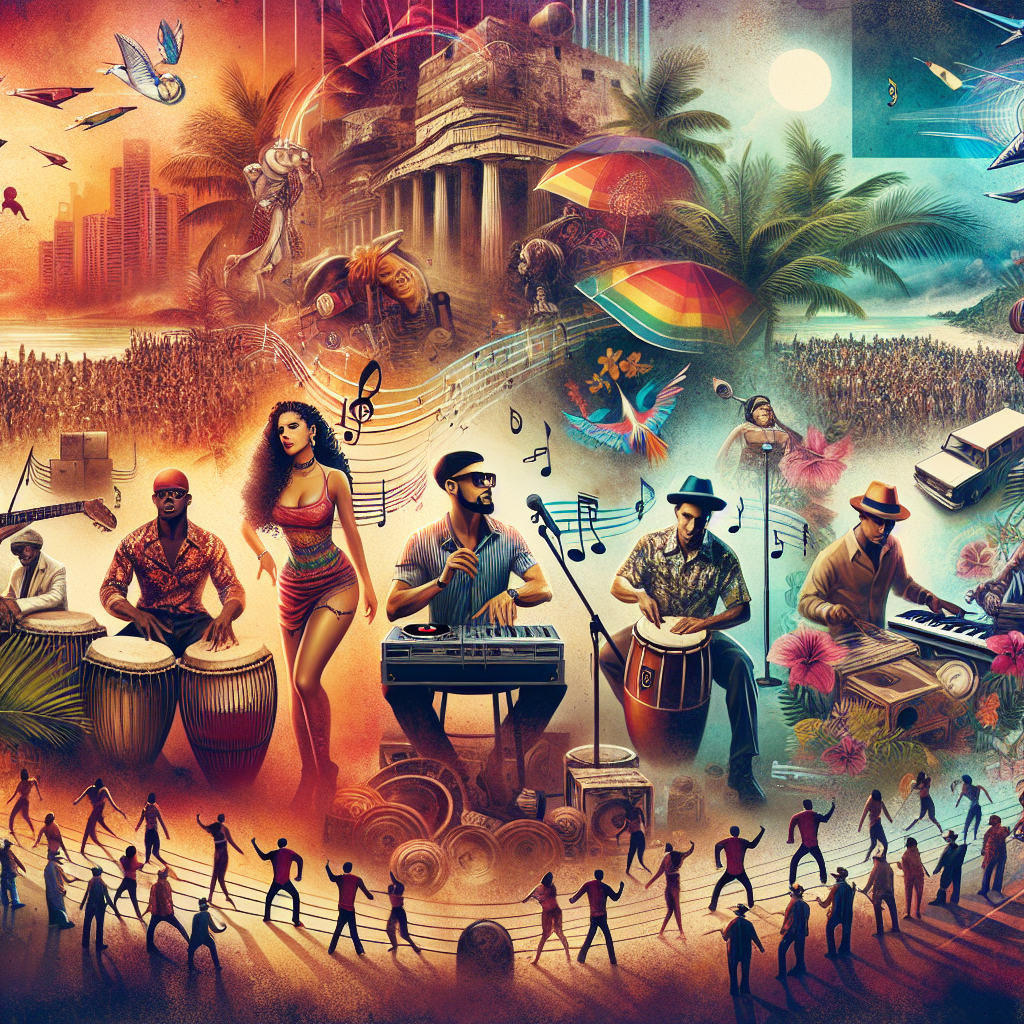Introduction
Samba, with its irresistible rhythm and powerful beat, has a profound influence on Latin music, characterizing not only a dance or a music genre but also representing a cultural brand of Brazil. Originating from African roots, Samba’s magic continues to have a significant impact on Latin music, making it phenomenally expressive and celebrated worldwide.
Origins of Samba
Samba originated from the African Bantu who were brought to Brazil from Angola, Congo, and Gabon during the trans-Atlantic slave trade era. The Bantu language was known as ‘semba,’ referring to an invocation to spirits of ancestors and gods of the African pantheon. Over time, this culture transformed into a unique music expression characterized by its distinctive rhythm and dance known as Samba.
Samba’s Evolution
Its evolution began in the Bahian states, where African rhythms blended with Portuguese folk music. Samba further evolved in the early 20th century when it transitioned into an urban phenomenon with the emergence of the Samba schools in Rio de Janeiro. These schools played a pivotal role in developing a unique style of Samba, making it one of Brazil’s essential cultural trademarks.
Samba’s Influence on Latin Music
Samba’s footprints can be traced across a wide range of Latin music genres, from Bossa Nova to Tropicalismo. The influence of Samba in Bossa Nova, born in the 1960s, is evident in the rhythm and complex chord progressions. Bossa Nova respected and used harmonic structures from Jazz but added a gentle Samba pulse, making a subtle but transformative change to Latin music.
Beyond Bossa Nova, Samba also influenced the modern Brazilian music movement known as Tropicalismo. Tropicalismo is a fusion of rock and roll, Samba, and other traditional Brazilian folk styles, embodying the diverse influences that Samba has had on Latin music. Samba’s impact extends far beyond the borders of Brazil, influencing artists and music styles globally.
Conclusion
The Samba, with its compelling rhythm, vibrant melody, and heartfelt lyrics, brings a majestic aura that extends beyond dance and music. It has a profound cultural significance, embodying the spirit and diversity of the Brazilian people. The inescapable influence of Samba has shaped the landscape of Latin music over the century, highlighting its importance and relevance in the global music arena.
FAQs
- Q: What is the origin of Samba?
A: Samba originated from the African tribes brought to Brazil as slaves. Over time, their culture and music transformed into a unique form – the Samba we know today.
- Q: How did Samba evolve?
A: The evolution of Samba began in Bahian states, where African rhythms blended with Portuguese folk music. It continued to evolve with the emergence of Samba schools in Rio de Janeiro, adapting to urban influences and creating a unique style.
- Q: How has Samba influenced Latin music?
A: Samba has shaped many Latin music genres, including Bossa Nova and Tropicalismo. These genres show the influence of Samba in their rhythms, chord progressions, and melodies.
- Q: How has Samba impacted global artists and music style?
A: Samba’s influence extends globally, inspiring artists from different genres. Its infectious rhythm and mesmerizing dance style have been adopted and adapted in various forms across the world.
- Q: Why is Samba important to Brazilian culture?
A: Samba is a symbol of Brazil, embodying the spirit and diversity of its people. It is an essential part of cultural celebrations, including the famous Rio de Janeiro Carnival.




